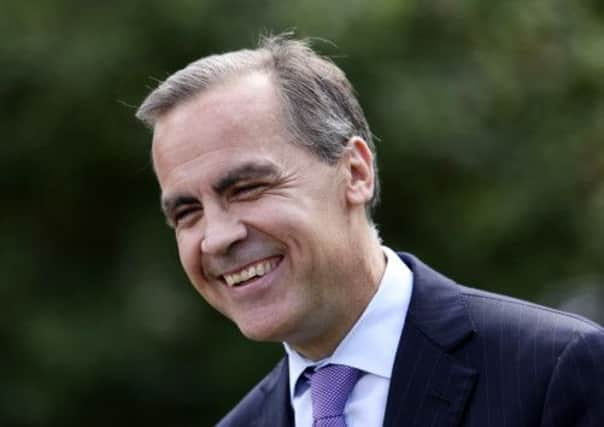Inflation to 13-month low, rate rise on cards


The figures came ahead of Wednesday’s quarterly outlook from the Bank of England which will take the temperature of the economy amid speculation governor Carney will raise his forecasts for growth and jobs.
The sharper-than-expected drop in consumer price inflation, to 2.2 per cent in October from 2.7 per cent a month earlier, is seen as easing pressure on the central bank to lift historically-low interest rates.
Advertisement
Hide AdAdvertisement
Hide AdHowever, with the economy firmly on the recovery path, some analysts believe policymakers will bring forward the date they expect unemployment to have fallen to a 7 per cent goal, potentially leading to a rate rise before the end of 2015.
Chris Williamson, chief economist at Markit said: “The Bank of England’s forward guidance states that a hike in interest rates will not be considered until unemployment drops below 7 per cent.
“[The] inflation report is likely to bring forward when the Bank expects this to happen from late-2016 to perhaps late-2015, given the recent flow of stronger-than-expected economic data.
“However, the Bank is also likely to place much emphasis on the fact that the 7 per cent jobless rate is only a threshold and will not automatically trigger a rate hike.”
He added: “There is a worry that the report could indicate that forthcoming energy price rises could lead to stubbornly high inflation in the longer term.”
Howard Archer, chief UK economist at IHS Global Insight, said: “It seems highly likely that the inflation report will see a raising of the Bank of England’s growth forecasts and a lowering of its unemployment forecasts, which will open the door to the bank starting to raise interest rates before mid-2016.”
The 2.2 per cent annual inflation figure equals the rate recorded in September last year and takes it closer to reaching the Bank’s target level of 2 per cent for the first time in four years. It was last lower, at 1.9 per cent, in November 2009.
Prime Minister David Cameron hailed the fall as “encouraging news for hard-working people”, though Labour pointed out that wages – rising at an annual rate of just 0.7 per cent, according to latest figures – were still lagging behind.
Advertisement
Hide AdAdvertisement
Hide AdThe slide in inflation comes after the UK saw three successive quarters of improving GDP growth as it strives to recover from a protracted economic downturn.
Capital Economics analyst Martin Beck said the latest data suggested that the UK economy was “hitting a sweet spot of accelerating growth and falling inflation”.
He added: “Looking forward, inflation may tick up a touch in November as some of the recent announcements of hefty increases in energy prices start to take effect. But… underlying pressures are likely to remain subdued.”
Key factors in the latest fall in inflation were a petrol pump price war that saw 4.9p cut from the price of a litre of fuel during October, and a smaller impact from university tuition fees, a year after they were introduced.